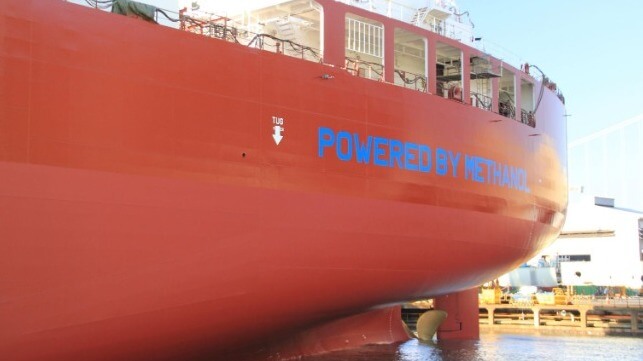Methanex Conducts First Net-Zero, Biomethanol-Powered Voyage

Methanex and MOL have carried out the world's first net-zero voyage powered by methanol, the two companies announced Monday.
Methanex co-owns Waterfront Shipping, which has a fleet of dual-fuel tankers that can run on Methanex's methanol product. On this voyage, the MOL-owned, Waterfront-operated tanker Cajun Sun ran on a mix of biologically-derived biomethanol - which has net-negative carbon emissions - with conventional natural gas-based methanol. The mixture was calibrated to produce a net-zero greenhouse gas footprint on a lifecycle basis. Cajun Sun crossed the Atlantic on an 18-day voyage on this fuel.
Methanex emphasized that the groundbreaking voyage was an example of how shipowners can use methanol to rapidly attain net-zero operations. Biomethanol and green methanol are also the zero-carbon fuels of choice for Maersk Group, which has taken the lead on decarbonization in deep-sea shipping.

that matters most
Get the latest maritime news delivered to your inbox daily.
"We’re proud to bring the marine industry a tangible solution to transition towards net-zero emissions through our blended methanol product using bio-methanol produced from renewable natural gas at our facility in Geismar, U.S.," said Mark Allard, Methanex’s SVP for low carbon solutions. "As the world’s largest methanol producer, we are establishing a network of relationships with leading renewable natural gas suppliers and assessing other pathways, including carbon capture and storage and e-methanol, to provide solutions for the marine industry and other customers."
MOL, which holds a 40 percent stake in Waterfront Shipping and owns Cajun Sun, is also experimenting with biologically-sourced methane as a substitute for natural gas. Working with a Japanese gas company, Air Water, MOL will test out the use of a liquefied bio-methane fuel in an LNG dual-fuel vessel in coastwise trade. The biogas will be sourced from cattle farmers and will have about 90 percent of the energy content of conventional LNG.
